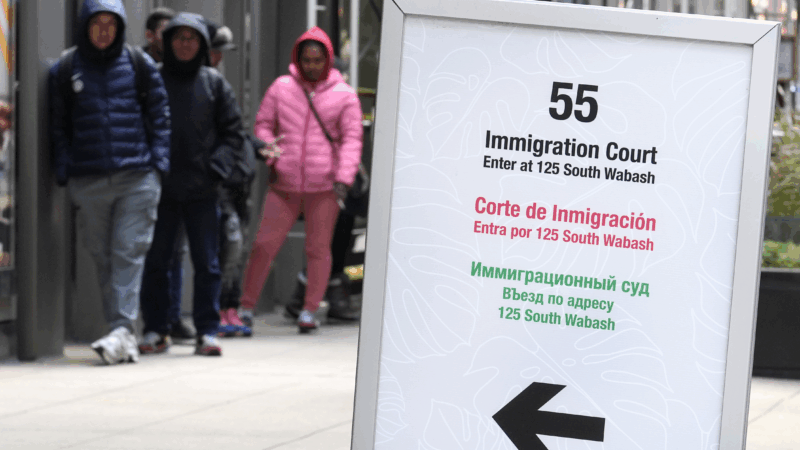Judge blocks Trump from cutting funding over ‘sanctuary’ policies
A judge ruled late Friday the Trump administration cannot deny funding to Boston, Chicago, Denver, Los Angeles and 30 other cities and counties because of policies that limit cooperation with federal immigration efforts.
U.S. District Judge William Orrick in San Francisco extended a preliminary injunction blocking the administration from cutting off or conditioning the use of federal funds for so-called “sanctuary” jurisdictions. His earlier order protected more than a dozen other cities and counties, including San Francisco, Portland and Seattle.
An email to the White House late Friday was not immediately returned. In his ruling, Orrick said the administration had offered no opposition to an extended injunction except to say the first injunction was wrong. It has appealed the first order.
Orrick also blocked the administration from imposing immigration-related conditions on two particular grant programs.
The Trump administration has ratcheted up pressure on sanctuary communities as it seeks to make good on President Donald Trump’s campaign promise to remove millions of people in the country illegally.
One executive order issued by Trump directs Attorney General Pam Bondi and Homeland Security Secretary Kristi Noem to withhold federal money from sanctuary jurisdictions. Another order directs every federal agency to ensure that payments to state and local governments do not “abet so-called ‘sanctuary’ policies that seek to shield illegal aliens from deportation.”
The cities and counties that sued said billions of dollars were at risk.
Orrick, who was nominated by President Barack Obama, said the executive orders and the “executive actions that have parroted them” were an unconstitutional “coercive threat.”
In May, the Department of Homeland Security published a list of more than 500 “sanctuary jurisdictions,” saying each one would receive formal notification that the government had deemed them noncompliant. It also said it would inform them if they were believed to be in violation of any federal criminal statutes.
The list was later removed from the department’s website after critics noted it included localities that have actively supported the administration’s tough immigration policies.
The Justice Department has also sued New York, Los Angeles and other cities over their sanctuary policies.
There is no strict definition for sanctuary cities, but the terms generally describe places that limit cooperation with Immigration and Customs Enforcement. ICE enforces immigration laws nationwide but seeks help from state and local authorities to identify immigrants wanted for deportation and hold them for federal officers.
Lindsey Vonn says she suffered ‘complex tibia fracture’ in her Olympic downhill crash
The 41-year-old star said her torn ACL was not a factor in her crash. "While yesterday did not end the way I had hoped, and despite the intense physical pain it caused, I have no regrets," she wrote.
Guerilla Toss embrace the ‘weird’ on new album
On You're Weird Now, the band leans into difference with help from producer Stephen Malkmus.
Nancy Guthrie search enters its second week as a purported deadline looms
"This is very valuable to us, and we will pay," Savannah Guthrie said in a new video message, seeking to communicate with people who say they're holding her mother.
Immigration courts fast-track hearings for Somali asylum claims
Their lawyers fear the notices are merely the first step toward the removal without due process of Somali asylum applicants in the country.
Ilia Malinin’s Olympic backflip made history. But he’s not the first to do it
U.S. figure skating phenom Ilia Malinin did a backflip in his Olympic debut, and another the next day. The controversial move was banned from competition for decades until 2024.
‘Dizzy’ author recounts a decade of being marooned by chronic illness
Rachel Weaver worked for the Forest Service in Alaska where she scaled towering trees to study nature. But in 2006, she woke up and felt like she was being spun in a hurricane. Her memoir is Dizzy.






